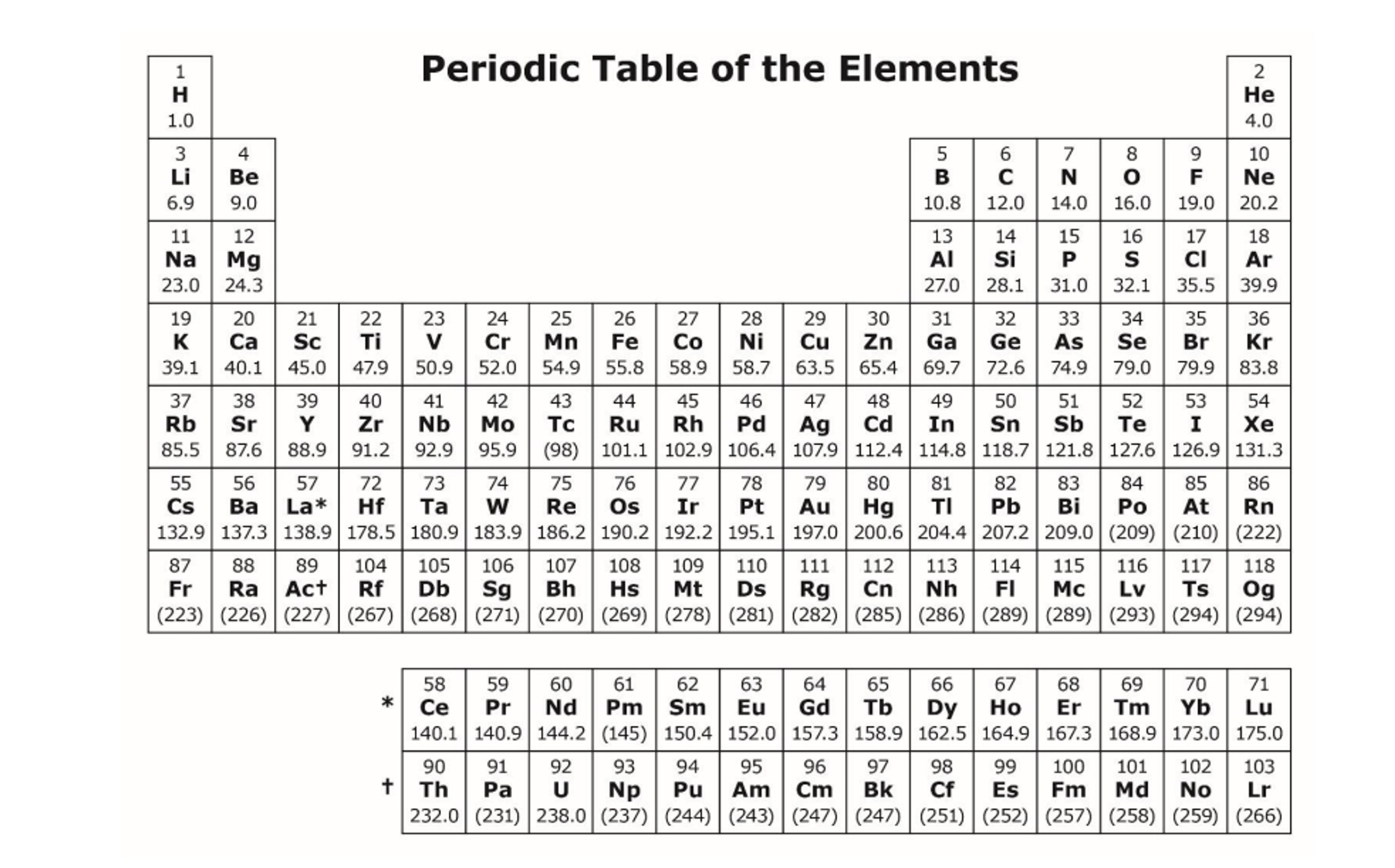
Table of Contents
The Medical College Admission Test (MCAT) is a critical step for pre-med students applying to medical school. Preparing for the MCAT can be overwhelming, especially with the sheer amount of material to review. Focusing on high-yield MCAT topics is one of the most effective ways to maximize your study time and improve your MCAT score. High-yield topics are the foundational concepts and frequently tested areas that carry the most weight across MCAT sections.
This guide outlines key high-yield topics, breaks them down by MCAT section, and provides strategies for studying them effectively. Whether you're a beginner or an advanced test-taker, understanding these areas will help you focus your efforts and achieve better results.
What Are High-Yield MCAT Topics?
High-yield topics appear most often on the MCAT and are essential for understanding core scientific principles. They form the foundation for solving complex problems and are drawn from the content areas outlined by the Association of American Medical Colleges (AAMC). These topics include biological and biochemical foundations, chemical and physical foundations, and psychological and social foundations.
High-yield topics save time during preparation by helping students focus on material that is most likely to appear on the exam. For example, understanding amino acids, enzyme kinetics, and the citric acid cycle is far more useful than studying obscure topics that might only appear once. Prioritizing higher yield topics can significantly enhance performance on the exam.
High-Yield MCAT Topics
When studying for the MCAT, it’s important to focus on both the big subjects and the specific topics that appear most often on the test. To figure out which topics are tested the most, our MCAT tutors carefully studied the official AAMC practice tests. They counted how many questions were about each topic and compared the numbers to find the ones that came up the most. Biochemical reactions, including enzyme kinetics and metabolic pathways, are integral to understanding many of these high-yield topics.
For example, if the citric acid cycle showed up in 35 questions and sound waves only came up in 15, the citric acid cycle would be a more important topic to study.
| High-Yield Topic | What to Know | MCAT Sections | Academic Discipline |
|---|---|---|---|
| Lipids | Structure (steroids, terpenes, prostaglandins) and biochemical roles | Chemical and Physical Foundations | Biochemistry |
| Amino Acids | Configuration, chirality, rotation, and significance in protein structure | Biological and Biochemical Foundations, Chemical | Biochemistry |
| Carbohydrates | Nomenclature, classification, isomerism, and roles in metabolism | Biological and Biochemical Foundations, Chemical | Biochemistry |
| Protein Structure & Function | Primary, secondary, tertiary, quaternary structures and enzymatic activity | Biological and Biochemical Foundations, Chemical | Biochemistry, Biology |
| Gel Electrophoresis Techniques | Applications in DNA, RNA, and protein analysis | Biological and Biochemical Foundations | Biochemistry |
| Enzyme Kinetics | Reaction rates, factors affecting enzymes, and biological roles | Biological and Biochemical Foundations, Chemical | Biochemistry, Biology |
| Glycolysis & Gluconeogenesis | Processes, substrates, products of glycolysis and gluconeogenesis | Biological and Biochemical Foundations | Biochemistry, Biology |
| Citric Acid Cycle | Acetyl-CoA production, reactions, and significance | Biological and Biochemical Foundations | Biochemistry, Biology |
| Nucleotides & Nucleic Acids | Structures, functions, and roles in genetics | Biological and Biochemical Foundations, Chemical | Biochemistry, Biology |
| Fatty Acid Synthesis | Oxidation of fatty acids and synthesis of saturated/unsaturated fats | Biological and Biochemical Foundations | Biochemistry, Biology |
| Electron Transport Chain | Components, energy production, and ATP synthesis | Biological and Biochemical Foundations | Biochemistry, Biology |
| Transcription & Translation | Mechanisms of transcription, tRNA, rRNA, and protein synthesis | Biological and Biochemical Foundations | Biology |
| Eukaryotic Chromosomes | DNA organization, chromosomal proteins, and genetic implications | Biological and Biochemical Foundations | Biology |
| Thermodynamics | Bioenergetics, free energy, and equilibrium constants | Biological and Biochemical Foundations, Chemical | Biochemistry, General Chemistry |
| Acid-Base Chemistry | Equilibria, titrations, and pH calculations | Chemical and Physical Foundations | General Chemistry |
| Oxidation-Reduction Reactions | Mechanisms, redox potentials, and applications | Chemical and Physical Foundations | General Chemistry |
| Kinematics | Motion, displacement, velocity, and acceleration | Chemical and Physical Foundations | Physics |
| Forces | Concepts of forces and their impact on motion | Chemical and Physical Foundations | Physics |
| Group Psychology | Social interactions, group dynamics, and influences on behavior | Psychological, Social, and Biological Foundations | Sociology, Psychology |
| Health Disparities | Socioeconomic factors affecting health | Psychological, Social, and Biological Foundations | Sociology |
Biology Topics
Biology is a key component of the MCAT, making up a significant portion of the exam. A solid understanding of how living organisms function and the mechanisms that drive these processes is essential for success. High-yield biology topics to focus on include:
- Cellular Biology: Study the structure and function of cells, including organelles, cellular processes, and cell signaling pathways.
- Genetics: Review inheritance patterns, gene expression, and genetic variations.
- Physiology: Understand how organ systems work, focusing on homeostasis and key biological processes.
- Ecology: Learn about the relationships between organisms and their environments, such as ecosystems, population dynamics, and community interactions.
Chemistry and Physics Topics
A strong grasp of chemistry and physics is essential for achieving a competitive MCAT score, as these areas test fundamental principles and their application to biological systems. High-yield topics include:
- Chemistry: Focus on stoichiometry, thermodynamics, biochemical reactions, chemical kinetics, and acid-base chemistry. These areas help explain quantitative relationships, energy changes, and reaction dynamics.
- Physics: Key topics include mechanics, electricity and magnetism, fluid dynamics, and optics. Understanding motion, forces, and fluid behavior is critical for answering physics-related questions on the exam.
These subjects emphasize the quantitative and conceptual understanding needed to solve complex problems. The MCAT provides a periodic table during the exam for reference when solving chemistry-related questions.

Psychology and Sociology Topics
The MCAT assesses scientific knowledge and an understanding of human behavior and societal influences on health. High-yield psychology and sociology topics include:
- Cognitive Processes: Memory, learning, and decision-making.
- Biological Bases of Behavior: Neural and hormonal influences on behavior.
- Social Psychology: The study of group behavior, social interactions, and societal norms.
- Cultural and Social Influences: How culture and society affect behavior and health outcomes.
- Social Inequality and Health Disparities: The impact of socioeconomic factors on health and access to care.
Should I Only Focus on High-Yield Topics?
Higher yield topics should be the primary focus of your preparation, but they are not the only areas to study. The MCAT tests a wide range of content, and skipping less frequently tested material may hurt your overall performance. A balanced approach ensures you’re ready for anything the test might include.
For example, topics like amino acids, citric acid cycle reactions, and enzyme kinetics appear often and should be prioritized. However, reviewing subjects like fluid dynamics or oxidation-reduction reactions will help you avoid gaps in knowledge. Practice tests can help you identify weak areas and ensure you cover everything you need.
How to Study High-Yield Topics Effectively
1. Prioritize Topics by Weight and Relevance
Start by identifying the topics with the greatest weight and relevance across MCAT sections. Use the AAMC content outline to determine which topics are tested most frequently. For example:
- In the biological and biochemical foundations section, focus on amino acids, enzyme kinetics, and the citric acid cycle.
- In the chemical and physical foundations section, give priority to acid-base chemistry, thermodynamics, and oxidation-reduction reactions.
Expert Tip: Create a study schedule that allocates more time to high-yield areas while still leaving room to review lower-yield topics. Balance is key to ensuring comprehensive preparation.
Read: The MCAT Mindset: How to Prepare for MCAT Prep and Testing
2. Use Active Recall and Spaced Repetition for Retention
Active recall involves testing yourself without relying on notes. This technique reinforces memory and deepens understanding. For example:
- Draw out pathways like glycolysis or the electron transport chain from memory.
- List the properties of amino acids, such as polarity and charge, without assistance.
Expert Tip: Spaced repetition complements active recall by ensuring you revisit the material at strategically spaced intervals. Tools like Anki flashcards make this process seamless by helping you retain high-yield concepts like biochemical pathways, physics equations, and amino acid classifications.
3. Integrate Practice Questions Early and Often
Apply your knowledge as soon as you review a topic. For instance:
- After studying acid-base chemistry, solve practice questions on titration curves and pH calculations.
- If you review genetic inheritance, immediately test your ability to solve Mendelian genetics problems.
Expert Tip: Practice questions not only reinforce learning but also reveal gaps in your understanding. Focus on analyzing incorrect answers to identify areas for improvement.
4. Use Visuals to Simplify Complex Topics
Visual learning is particularly effective for high-yield MCAT topics. Create flowcharts, diagrams, and tables to organize information:
- Map out the steps of the citric acid cycle, showing inputs, outputs, and regulatory points.
- Draw comparisons between saturated and unsaturated fats or between prokaryotic and eukaryotic gene expression.
- Use diagrams to explain cellular processes like transcription, translation, or oxidative phosphorylation.
Expert Tip: Redrawing visuals during review sessions helps reinforce the material and solidify connections between concepts.
5. Structure Study Blocks and Maintain Consistency
Divide your study time into focused blocks to maximize efficiency. For example:
- Spend one block reviewing amino acids, protein function, or biochemical pathways.
- Use another block to tackle practice problems related to biological systems or chemical reactions.
Expert Tip: Consistent, targeted study sessions are far more effective than cramming. Review previously covered topics regularly to ensure long-term retention.
6. Simulate Test Conditions with Full-Length Practice Tests
Full-length practice tests are essential for building stamina and improving time management. Aim to complete a practice test every two weeks. Afterward, analyze your results to pinpoint weaknesses:
- Identify which high-yield topics need further review, such as enzyme kinetics or DNA replication.
- Track patterns in your mistakes and focus on addressing the underlying concepts.
Expert Tip: Simulating test-day conditions helps prepare you for the pacing and integration of material across MCAT sections.
Common Mistakes to Avoid in MCAT Prep
1. Neglecting Low-Yield Topics Entirely
While higher-yield topics should take priority, low-yield topics still appear on the MCAT. For example, fluid dynamics or optics may only account for a few questions, but skipping them altogether can cost you points.
2. Overloading with Resources
Using too many resources can dilute your focus and lead to burnout. Instead, choose a few high-quality materials and stick to them. For example:
- Use Kaplan or Examkrackers for content review.
- Rely on UWorld or AAMC materials for practice questions and tests.
3. Memorizing Without Understanding
Memorization alone won’t help you solve MCAT problems. For instance:
- Memorizing the intermediates of the citric acid cycle isn’t enough. You need to understand how the cycle integrates with ATP production and metabolic regulation.
- Understanding biochemical reactions is crucial, as they are integral to metabolic pathways and various biological processes.
Focus on understanding the connections between concepts, as this will improve your ability to answer complex, multi-step questions.
4. Skipping Full-Length Practice Tests
Many students avoid full-length tests due to their time commitment, but these tests are crucial for building endurance and testing your ability to integrate material across sections. Without them, you may struggle to pace yourself on test day.
5. Underestimating the CARS Section
The Critical Analysis and Reasoning Skills (CARS) section often gets overlooked because it doesn’t rely on specific content knowledge. However, regular practice is necessary to improve reading comprehension and reasoning skills, which are vital for success in this section.
List of Best Resources for High-Yield Topics
1. AAMC Official Resources
AAMC materials include full-length practice exams, question packs, and a detailed content outline. These resources are essential because they are designed by the test makers and reflect the actual MCAT format.
2. Kaplan MCAT Prep Books
Kaplan’s comprehensive books cover all MCAT sections and higher-yield topics in detail. The included practice questions and test-taking strategies make them a go-to choice for content review.
3. UWorld MCAT QBank
UWorld offers thousands of practice questions with detailed explanations. The questions are challenging and help reinforce understanding of higher yield topics, making it an excellent tool for targeted practice.
4. Khan Academy MCAT Collection
This free resource offers high-quality video lessons on topics like transcription, the citric acid cycle, and thermodynamics. It’s ideal for visual learners who benefit from clear, concise explanations.
5. Anki Flashcards
Anki uses spaced repetition to help you retain higher-yield key facts over time. Pre-made decks for the MCAT focus on topics like amino acid properties, biochemical pathways, and physics equations.
6. Examkrackers Study Materials
Examkrackers provides concise explanations of higher-yield topics, making them useful for quick reviews. Their practice questions also mimic the MCAT’s style and difficulty.
7. Blueprint MCAT Practice Tests
Blueprint offers realistic full-length exams with analytics to track your performance, focusing on higher-yield topics. These tests help identify strengths and weaknesses while preparing you for the exam’s pacing and integration of material.
8. Reddit MCAT Community
The MCAT subreddit is a helpful platform for connecting with other test-takers. It provides study tips, resource reviews, and advice on overcoming challenges during prep.
Best Free MCAT Practice Tests
Practice exams are a great way to familiarize yourself with the types of questions that may appear on the actual MCAT exam. There are plenty of free options available online that will give you a pretty good feel for what to expect when your test date arrives. Some are full-length practice examples while others focus on certain sections or drills. Both can be equally helpful and allow you to tailor your MCAT practice.
- Princeton Review Free MCAT Practice Test Online
- AAMC MCAT Official Prep Free Practice Exam
- Blueprint’s Free Full-Lenth MCAT Exam (With Answers, Explanations, and Analytics) – To access this, you’ll need to sign up for a free practice account
- Altius Test Prep MCAT-2015 Practice Exam
- Kaplan – Full-Length Practice Exam (With Predictive Scoring) – Sign up for a Kaplan free trial to access
- Med-Pathway – Free Diagnostic MCAT Exam
- MCAT Prep – Full-Length Practice Test
- Test-Guide – Practice Exams, By Section
- Varsity Tutors – Free MCAT Diagnostic and Practice Tests
- Test Prep Preview MCAT
- Magoosh Free MCAT Practice Test – Sign up for a free Magoosh account to access
- Jack Westin – MCAT Practice Exam
- 4Tests Free 60-Minute Practice MCAT
- MedSchoolCoach Free Half-Length MCAT Practice Exam
Bottom Line
Focusing on higher-yield MCAT topics allows students to prepare effectively and save time. These topics represent the foundational knowledge required to solve complex problems across MCAT sections. Use practice tests, spaced repetition tools, and a structured study plan to maximize your preparation. By addressing both high- and low-yield topics, you’ll be ready to tackle the MCAT and move closer to your medical school goals.
Work with MCAT Test Prep Coaches
Prepare for the MCAT with the help of expert coaches who specialize in high-yield topics and test strategies. Get personalized support to tackle your weaknesses, improve your score, and feel confident on test day. MCAT Test Prep Coaches here.
Related Articles
Explore more MCAT preparation strategies and resources with these helpful articles:
- The Best 50+ Free Resources for the MCAT Exam
- How Many Times Can You Take the MCAT – and When Should You Take It?
- MCAT Study Schedules: Comparing 1, 3, and 6-Month Plans
- How to Study for MCAT and Score-cery Your Way to Success!
- MCAT High Yield Topics: Everything You Need to Know
- Medical School Acceptance Rates, GPA, and MCAT Scores of the Top 15 Programs
- The Best MCAT Prep Course for Your Success
- The 10 Best GMAT Tutors
FAQs
What is the highest yield MCAT topic?
- According to most test-takers and MCAT prep experts, biochemistry is one of the highest yield topics on the MCAT. It’s heavily tested in both the Chemical and Physical Foundations and the Biological and Biochemical Foundations sections. Key areas include amino acids, enzyme kinetics, metabolism, and protein structure.
What are the topics for high-yield chemistry?
- High-yield chemistry topics for the MCAT include:
- Acid-base chemistry (pKa, buffers, titration)
- Kinetics and equilibrium
- Thermodynamics and Gibbs free energy
- Electrochemistry
- Redox reactions
- Atomic and molecular structure
What subject is on the MCAT the most?
- Biology and biochemistry together make up the largest portion of the MCAT. The Biological and Biochemical Foundations section includes a significant number of questions focused on cellular processes, genetics, molecular biology, and metabolism. Psychology and sociology also make up a large portion through the Psych/Soc section, so don’t overlook them.
Is 2 months enough for the MCAT?
- Two months can be enough time to study for the MCAT if you can commit to full-time preparation, typically 6–8 hours per day. In this timeframe, you’ll need a structured study plan that includes content review, practice questions, and full-length exams. For most students, 3–4 months is ideal, but with strong discipline and prior foundational knowledge, 2 months is doable.











